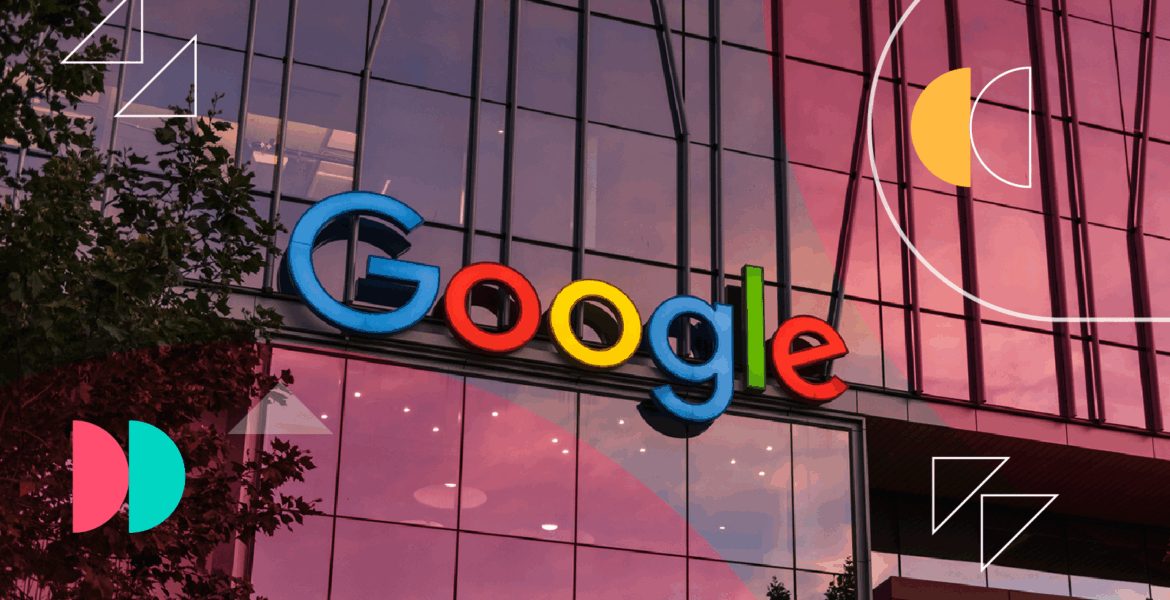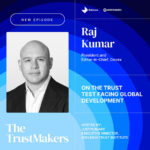By R. Larsson, Advertising Week
Google’s latest announcement on the future of third-party cookies has sparked a mixture of frustration and renewed urgency across the ad tech sector. While some industry experts were adamant that keeping cookies in Chrome and shelving previous ‘opt-out’ plans would not halt the search for alternatives, others saw it as a further indication of the uncertainty of the digital landscape.
We asked leading technology and media experts for their responses to Google’s decision.
Innovation must continue, regardless of cookie reprieve
Terry Hornsby, Executive Vice President & Founder, Mantis
“Google’s decision not to roll out a standalone prompt for third-party cookies in Chrome is significant, but many in the industry have been preparing for multiple scenarios all along. The reality is, advancements in alternative targeting approaches shouldn’t go to waste just because cookies are sticking around longer than expected.
“The industry has made substantial progress with contextual solutions that can identify interests in specific environments – such as gardening enthusiasts browsing sports content – without necessarily needing to know who the person is. This not only supports advertisers in maintaining performance but also empowers publishers to better monetise their content by aligning ad relevance with context rather than identity.
“In turn, this means a more balanced ecosystem, where advertisers have the opportunity to blend approaches, extending beyond the current environment while still respecting the broader direction toward privacy.”
Kenneth López Triquell, VP of Sales, MGID
“This latest decision by Google marks yet another chapter in a long history of postponed promises for many in the industry. But, for the broader ad tech ecosystem, it should act as a wake-up call and an opportunity.
“Continued reliance on third-party cookies keeps the industry anchored to a model that prioritizes user tracking over innovation and transparency, all while Google is facing a major antitrust lawsuit in the US, raising wider questions about control and fairness in digital advertising.
“All of this emphasizes that now is not the time to pause progress. Ad tech platforms must continue to accelerate investment in future-proof solutions, especially those built around contextual targeting, first-party data, and publisher-controlled technology. The businesses that will continue to succeed are those creating smarter, more sustainable solutions for brands, publishers, and users alike.”
Consumers – and their privacy – remain a priority
Fern Potter, SVP Strategy and Partnerships, Multilocal
“Google’s latest update is great for independent measurement, good for publishers, and healthy for maintaining competitive innovation; as preserving the cookie means the industry has a democratized and interoperable token for finding and measuring audiences.
“However, with the cultural shift towards a consent-first internet, and with the dangers of data leakage and unpronounced tracking associated with third-party trackers, the move is not a good one for consumers.
“This leaves advertisers and adtech companies with a tough choice – do they prioritise responsible advertising that resonates with their audience, or stick with what they know, and risk alienating consumers in the long-term?”
Charlie Johnson (she/her), VP International, Digital Envoy
“Well, colour us not shocked, but still a bit disappointed. After years of the industry pouring time, money, and brainpower into cookie-free solutions, Google’s latest move feels a bit like being told the wedding’s off after the cake’s already been cut.
“Let’s not forget: cookies were never the gold standard of targeting — more like the crumbling biscuit at the bottom of the jar. Crucial channels like CTV don’t even touch them, and consumers? They’re more privacy-savvy than ever (and far less tolerant of digital stalking).
So if not now… when? The push to move on from cookies came from a genuine need — and that need hasn’t magically disappeared. Advertisers should keep leaning into privacy-first strategies. The momentum is real, the groundwork’s been laid, and frankly, we’ve come too far to turn the car around now.”
Owen Hanks, Founder and CEO, Measure Protocol
“While consumers have clearly moved ahead in their expectations around data protection and privacy, this latest move from Google highlights that parts of the industry are still struggling to keep pace. All players in the digital advertising ecosystem need to prioritize owning and sourcing their own zero or first-party data. The most sustainable approach remains building direct relationships with consumers based on consent and transparency.
“Companies that invest in ethical data collection now – where people understand the value of their data and have agency over how it’s used – will be better positioned regardless of how cookie policies evolve in the future.”
A chance for publishers to take back control
Andrew Mole, CEO and Co-Founder, pubX
“The latest Google news should not be seen as a reprieve for publishers from taking action, but instead an illustration that they need to take greater ownership over their own technology.
“The ongoing cookies narrative highlights that waiting for macro changes actually takes the power away from publishers. In order to protect themselves from these ecosystem-level issues, publishers need to proactively take control of their own destiny, create robust tech stacks, and lean on partners who can help them do this.”
What does this mean for the future of identifiers?
Geoffroy Martin, CEO of Ogury
“Google’s latest shift doesn’t alter the course of history. Identifiers have already vanished from more than half of the open web — and this proportion continues to grow, driven by consumer expectations, regulatory pressure, and platform fragmentation.
“At the same time, a significant portion of ID-based signals will remain available. That’s why the real challenge is no longer what happens when IDs disappear, but how to effectively operate and perform across both ID-based and ID-less environments. This is the new media reality, and the winners will be those who embrace this hybrid landscape. The key is to build platforms and data models that work across the full spectrum of addressability, leveraging all signals, whether identity is present or not. While relying solely on identifiers limits reach and creates fragile strategies, ignoring IDs entirely means missing the value that still exists in identity-based signals.
“The smart approach isn’t about choosing sides — it’s about intelligently integrating both approaches, in a world that will remain mixed.”
Nick Tiano, Chief Revenue Officer US, Making Science
“Google’s decision to forgo a new standalone third-party cookie prompt marks the de facto conclusion to the years-long deliberation over cookie deprecation. While a prompt could have hastened deprecation via user opt-outs, the approach presented significant regulatory risk over potential self-preferencing.
“Instead, Google is emphasizing enhanced user control through improved browser settings by investing in privacy-preserving technologies such as IP Protection. Although the future of the Privacy Sandbox APIs remains uncertain, there is still a world where they support advertising and measurement functions as third-party cookies and IP addresses become less reliable. All of the above may warrant a revisit in the case of a ruling on the forced sale of Chrome.”
Mathieu Roche, CEO and Co-Founder, ID5
“Just because cookies haven’t evolved in the last five or twenty years doesn’t mean the industry has to stay stuck in the stone (or cookie) age. Since Google’s original announcement, we’ve seen real momentum in the development and adoption of alternative identity solutions. Recent data from Bidswitch and Equativ shows that bid requests lacking an ID in Chrome are now down to just 30%. The data also highlights the value of using multiple IDs, with advertisers gaining incremental CPM reach and publishers seeing 2x to 3x improvements in CPMs and bid rates.
“While I don’t believe this is the final chapter in Google’s cookie saga, it’s clear we’ve reached a fork in the road. The choice is ours: continue down a path shaped by monopolistic control, or take a different route, one that embraces innovation, fosters healthy competition, and yields better outcomes for the entire advertising ecosystem from users to publishers, advertisers, and beyond.
“We also must remember that cookies don’t make life any easier and identity in Chrome is just a small piece of the puzzle. Advertisers and publishers don’t solely operate in Chrome but want to connect with their audiences across other browsers and channels like CTV, audio, and gaming too. The industry needs a better system that unifies identity layers and a wide variety of signals across these environments.”











